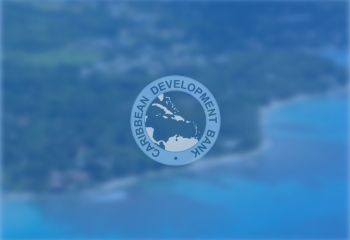Caribbean Tourism Organization and Caribbean Development Bank Partner with Ministry of Tourism of St. Kitts to Host Climate Smart Tourism Forum
Forum brought together tourism and international development partners, and regional public and private tourism sector representatives to discuss strategies for climate resilient Caribbean tourism
The Caribbean Tourism Organization (CTO) in collaboration with the St. Kitts Ministry of Tourism hosted the Climate Smart Sustainable Tourism Forum, as the first regional activity related to implementation of the Supporting a Climate Smart and Sustainable Caribbean Tourism Industry (CSSCTI) project, funded by the Caribbean Development Bank (CDB). The landmark event, in observance of the International Year of Sustainable Tourism for Development was held in Basseterre, St. Kitts from December 12-14, 2017.
The Forum brought together local, regional, and international representatives from public and private sector tourism entities, as well as development agencies for three days of dynamic and interactive engagements. It examined climate change adaptation, mitigation, and opportunities for sound management of Caribbean destinations. Key Forum Sessions included: Tourism Resiliency through Climate Change Adaptation & Mitigation; Innovative Models & Best Practices in Sustainable Tourism; S.M.A.R.T Destinations: Using Climate as an Opportunity; The Tourism Recovery Roundtable; and Roadmap to Disaster Management.

The keynote presentation was delivered by Mr. Greg McKenzie, senior news presenter, producer and television broadcaster from the British Broadcasting Corporation (BBC), London U.K, who explained that as more Caribbean countries developed their tourism industry, it would produce significant impacts on their natural resources, consumption patterns, as well as ecological and social systems. He therefore argued that sustainable and responsible planning and management was imperative for the industry to survive. “A balance has to be found between limits and usage so that [we] continuously change monitoring and planning [to] ensure that tourism can be managed. More importantly, sustaining development must include the interests of all stakeholders, including indigenous people, local communities, visitors, industries and of course more importantly, government united in the effort to mitigate and combat global climate change and its related impacts” Greg McKenzie, BBC.
The first two days of activities included presentations by experts showcasing best practices for a climate resilient sustainable tourism industry; the sharing of experiences and benchmark initiatives by country representatives; practical workshops to reinforce lessons learnt; and experiential field visits showcasing key initiatives in St. Kitts. Presentations were received from Dr. Ulric Trotz, Deputy Director, Caribbean Community Climate Change Centre, Mr. Hugh Riley, CTO’s Secretary General and CEO, Dr. Yves Robert Personna, Project Manager for the African Caribbean Pacific-European Union-Caribbean Development Bank- Natural Disaster Risk Management (ACP-EU-CDB NDRM) in CARIFORUM Countries programme, at the CDB, and Lieutenant General Russel L. Honoré, best known for serving as commander of the Joint Task Force Katrina responsible for coordinating military relief efforts post Hurricane Katrina in the United States, who presented on the topic, ‘Lessons from Katrina.’
On the third day a tourism sector strategic consultation workshop was held for the CSSCTI project, chaired by the CTO Sustainable Tourism Specialist and CSSCTI project Manager, Ms. Amanda Charles. Also presiding over the meeting was Dr. Yves Robert Personna, who delivered a presentation on the NDRM programme highlighting ongoing activities to include support given to countries.

“CBD has partnered with CTO to help incorporate climate change adaptation and disaster risk reduction considerations into national and regional tourism policies, plans and operations. While the tourism industry is crucial to the economic growth and development of the Caribbean, one must also recognise that this sector is highly sensitive to the impacts of climate change and extreme weather events. These events have adversely affected the flow of environmental goods and services on which the sector is largely dependent. Therefore, it is essential to develop and implement sound initiatives to increase the tourism sector resilience to climate-related risks to ensure its sustainability”, said Dr. Personna.
The Climate Smart Sustainable Tourism Forum was an opportunity to share and exchange best practices, hear and learn from experts and engage in rich dialogue and networking with tourism industry stakeholders, as well as regional and international partners, in seeking to enhance climate resiliency and strengthen disaster risk management strategies in the Caribbean Tourism industry.
“We are indebted to the CDB for their support of the Caribbean Tourism Sector in providing the financial and technical assistance for the implementation of the Supporting a Climate Smart and Sustainable Caribbean Tourism Industry project, which facilitated the convening of the Forum. The threats posed by global warming and climate change require a well-coordinated and urgent response, given the vulnerability of the Caribbean region and the tourism sector specifically. This project will support the mainstreaming of climate and disaster risk reduction considerations in tourism business operations and destination management, and through the delivery of training and tools, enhance regional competencies for climate change adaptation and disaster risk management,” Hugh Riley, Secretary General and CEO.
Funding for the CSSCTI project and related activities is being provided under the African Caribbean Pacific-European Union-Caribbean Development Bank- Natural Disaster Risk Management in CARIFORUM Countries programme, which aims to reduce vulnerability to long-term impacts of natural hazards, including the potential impacts of climate change, thereby achieving national and regional sustainable development and poverty reduction goals in those countries.


